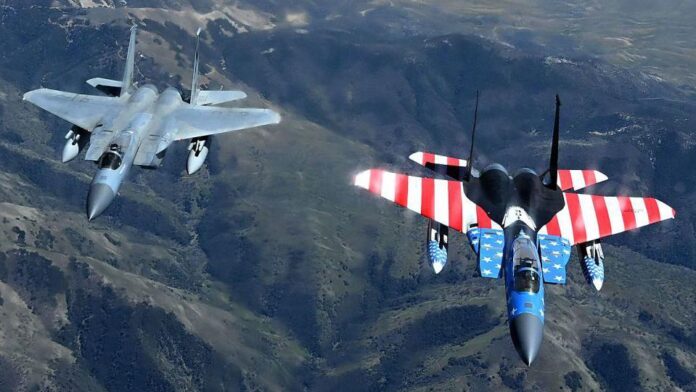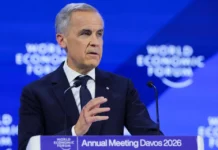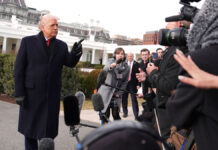Boeing’s defense arm has been hit with a fresh labor walkout as approximately 3,200 skilled machinists at facilities in St. Louis, St. Charles, Missouri, and Mascoutah, Illinois, initiated a strike at midnight after unanimously rejecting the company’s latest contract offer.
These workers, represented by the International Association of Machinists and Aerospace Workers (IAM) District 837, play a critical role in assembling fighter aircraft including the F‑15 Eagle, F/A‑18 Super Hornet, the MQ‑25 aerial tanker drone, and components for the newly awarded F‑47 fighter jet program. It marks the first strike at Boeing’s defense operations since 1996.
The breakdown came after union members dismissed the revised four-year proposal, which featured a general wage increase of 20%, enhanced medical and pension benefits, overtime protections, and a $5,000 ratification bonus.
Boeing had promoted the offer as delivering up to 40% average wage growth over the term, but the majority of IAM members deemed it insufficient, particularly objecting to unchanged alternative scheduling provisions.
Union leaders emphasized that workers deserve a contract reflecting their expertise and contribution to national defense.
Boeing executives declared readiness to activate contingency plans to sustain operations with non-union personnel.
Senior leadership in the Air Dominance division stated the company was prepared to mitigate the disruption and continue meeting defense customer commitments, though acknowledged the unpleasant reality of the strike.
This action compounds Boeing’s labor-related challenges following a major machinist strike in late 2024 that involved more than 33,000 workers, paused commercial jet production for nearly two months, and resulted in tens of billions in losses.
While that strike ended with a negotiated pay increase of approximately 38%, the new defense strike underscores unresolved grievances across the company’s broader workforce.
Industry analysts warn the strike could delay delivery timelines for defense contracts and further complicate Boeing’s recovery efforts, which are already strained by recent aircraft incidents, safety reviews, and financing pressures.
CEO Kelly Ortberg and other executives have sought to reassure investors but face a growing test of operational resilience and employee relations across both commercial and defense divisions.
As the strike unfolds, attention turns to whether Boeing and IAM will re-engage in negotiations or hold firm on their respective positions.
Efforts to resolve the impasse swiftly are vital not only to avoid schedule setbacks for critical military programs but also to prevent reputational damage that could affect future contracts and investor confidence. The outcome could set the tone for labor dynamics at Boeing well into 2026.
Written By Ian Maleve



















